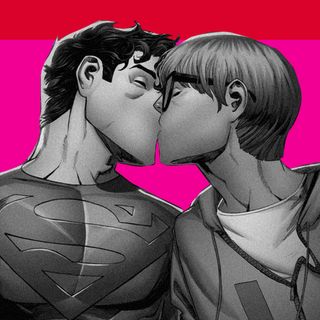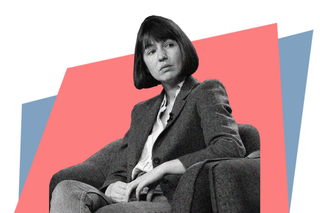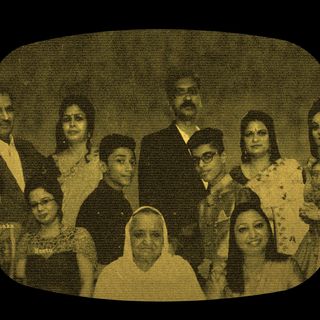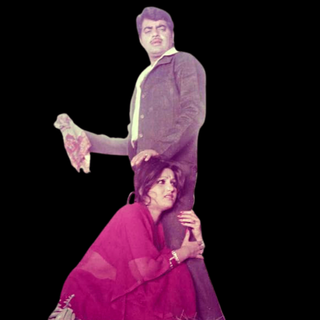
Sally Rooney Boycotts An Israeli Publisher for Translation. What Does It Mean When Artists Take a Stand?
The move has received much polarization, but it revives the debate on the impact artists can have when their art meets politics.

“Have I told you I can’t read contemporary novels anymore? … Most of them [authors] haven’t so much as glanced up against the real world in decades… Why don’t they write about the kind of lives they really lead, and the kind of things that really obsess them? Why do they pretend to be obsessed with death and grief and fascism — when they’re really obsessed with whether their latest book will be reviewed in The New York Times?”
Tucked into the pages of Sally Rooney’s latest novel Beautiful World, Where Are You, is this passage, which perhaps encapsulates the essence of the controversy she now finds herself in. On Tuesday, the bestselling author of Normal People released a statement explaining her decision to boycott an Israeli publisher, Modan, for a Hebrew translation of Beautiful World. In the statement, the Irish novelist voiced her support for the Boycott, Divestment and Sanctions (BDS) movement, which is a Palestinian solidarity cause that promotes the economic and cultural boycott of Israel for its apartheid practices.
“I understand that not everyone will agree with my decision, but I simply do not feel it would be right for me under the present circumstances to accept a new contract with an Israeli company that does not publicly distance itself from apartheid and support[s] the UN-stipulated rights of the Palestinian people,” she said.
She also went on to cite various human rights reports that all conclude the same thing: Israel is an apartheid state. The BDS movement, similar to the cultural boycott of the South African apartheid regime, aims to put pressure on the state to end its oppressive practices towards Palestinians.
Rooney is not the first novelist to have done this. Alice Walker, the acclaimed author of The Color Purple, did the very same thing in 2012, taking a stand against what she called Israel’s “apartheid state.” “I grew up under American apartheid… and this was far worse,” she had said.
The move has, predictably, been met with much polarization. While there are some who support the author, others vehemently disagree, claiming that the decision amounts to discrimination.
“The very essence of literature, its power to bring a sense of coherence and order to the world, is negated by Rooney’s choice to exclude a group of readers because of their national identity,” a member of the Jewish People Policy Institute, wrote in a column.
However, Rooney has clarified that she does want her novels to be translated into Hebrew — just in a way that would comply with BDS norms.
“When it’s ice cream or when it’s cement, or whatever else it is, it’s one thing, but when it comes to culture, I just have a very, very hard time seeing how this can be productive in changing anything. What literature is supposed to do is reach into the hearts and minds of people,” literary agent Deborah Harris said, in a New York Times column.
Related on The Swaddle:
Tell Me More: Talking Dissent And Hope In India’s Art World With Meenakshi Thirukode
This is a point worth exploring. Products are indeed one thing, but what does it mean for art to be drawn into politics? Is this an inevitable thing, given the commodification of art under capitalism that Rooney herself draws attention to in her books? Or is art fundamentally political just by virtue of existing in a political world?
It is not just writers to whom the question applies. Earlier this year, musicians Roger Waters and Patti Smith signed an open letter boycotting “Israel’s complicit cultural institutions.” And this is the crux of the issue: when a culture itself is implicated in oppression, how do the creators of cultural artefacts respond? Music, books, and art have been political in their subject matter for a long time. But their uses outside their self-contained worlds bear analysis in terms of their impact.
What is the point of writing about ideas that one doesn’t practice otherwise? Can art be about politics, without being political? For Rooney, a self-proclaimed Marxist, the apathy of the literary industry towards the real world is grating. But this is true of many forms of art.
Way back in the 70s, two theorists Theodor Adorno and Max Horkheimer spoke of the “culture industry,” which they said was the current system in which art in popular culture is mass-produced, standardized, commercialized, and ultimately, makes the status quo legitimate. It also renders people into passive contentment:
Sally Rooney as an author has been keenly aware of this: political art doesn’t necessarily equate to art as politics. In other words, dabbling in politics in art is now a trend — it is almost formulaic, now, for “political” art to win awards and generate buzz without doing much to change conversations in the real world. This is especially true for privileged artists — white, able-bodied, and from relatively secure backgrounds — like Rooney herself.
It is also true that privileged authors often write about the interior worlds of individual characters more than they tackle larger socio-political issues. There is something predatory about when they try the latter: the recent controversy around American Dirt, a book about the ordeal of a Mexican woman immigrant to the US, written by a white American author, is a case in point.
Is being a political artist the way to break out of this? The jury is still out on that, since it is unclear what her support for the BDS movement will do beyond prompting a spate of think pieces (like this one) about the author herself, rather than the movement. But that doesn’t mean it isn’t worth trying.
The question of how to make art that is actually important and meaningful is one that Rooney grapples with. Is it worth it, or is the point of life to care about the minutiae of people’s love and family lives, as we all stand “in the last lighted room before the darkness?” Perhaps this is her way of finding out.
Rohitha Naraharisetty is a Senior Associate Editor at The Swaddle. She writes about the intersection of gender, caste, social movements, and pop culture. She can be found on Instagram at @rohitha_97 or on Twitter at @romimacaronii.
Related


How Patriarchy Drives Mental Illness, Superstition to End Lives in ‘House of Secrets’
